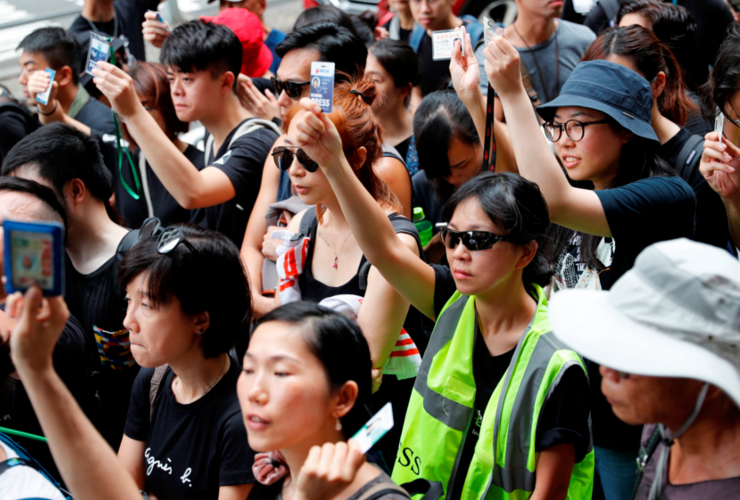The International Press Institutes (IPI), a global network of editors, media executives and leading journalists for press freedom, today expressed concerned at the failure of the Hong Kong government to publicly condemn and investigate the targeted violence journalists have endured while covering ongoing protests against the government’s proposed changes to extradition law.
On Sunday, June 9, one million people (13 percent of the population) took to the streets of Hong Kong to protest the proposed amendment, which would allow Hong Kong residents and visitors to be extradited to other jurisdictions, including mainland China, on a case-by-case basis.
Though the incident that sparked these protests did not involve journalists, media organizations have expressed concern that if the bill is passed both journalists and their sources could be extradited to mainland China, where clampdown on critical opinions has increased and over 110 journalists are currently in prison, according to international monitors.
As the protests intensified, police began to use tear gas and rubber bullets to keep the protestors at bay. Hong Kong reporters claim that during their coverage of these events they were met with insults and violence by both police and protestors.
The IPI global #pressfreedom network condemns #HongKong government’s failure to investigate and condemn violence against journalists covering anti-extradition-law protests.
Our statement ➡️ https://t.co/KTeru7ZvZ3 @HongKongFP pic.twitter.com/SOhdvA0M8k
— IPI (@globalfreemedia) July 26, 2019
On June 17, the Hong Kong Journalists Association (HKJA) filed a complaint with the Independent Police Complaints Council (IPCC) claiming police caused bodily harm to 26 journalists during the protests. In the complaint they claimed the misconduct was a breach of Hong Kong’s Basic Law and called on territory’s chief executive, Carrie Lam, to create an independent committee to ascertain whether a top-level order was the cause of the incidents.
The day after the HKJA complaint was filed, Hong Kong’s Foreign Correspondents’ Club released a statement expressing “grave concern” at reports of police targeting journalists who had visible press badges. In the statement, the group called for “an independent investigation of allegations made by journalists and other witnesses of the use of force by police and (…) for such investigations to be thorough and transparent.”
On July 14th, over a month after the first round of protests, several hundred reporters gathered in the streets of downtown Hong Kong for a silent march organized by seven Hong Kong media associations to protest police violence against journalists. The protesters held up signs reading, “Stop police violence, defend press freedom” and “Protect our fourth estate”.
“It is disturbing enough that journalists in Hong Kong are threatened by the proposed changes to the local extradition law, which may force them to face a justice system in mainland China that has suppressed journalistic rights for decades, and directly contradicts the principles enshrined under the ‘one country, two system’ policy,” IPI Deputy Director Scott Griffen said. “But it is at least equally upsetting that journalists covering peaceful protests are attacked and intimidated by police.”
Despite the numerous condemnations from Hong Kong’s media watchdogs, the incidents of violence against journalists have not stopped. At least one reporter was admitted to the hospital on July 21, after he and his colleague were beaten to the ground with wooden bats by gang members wearing white T-shirts.
